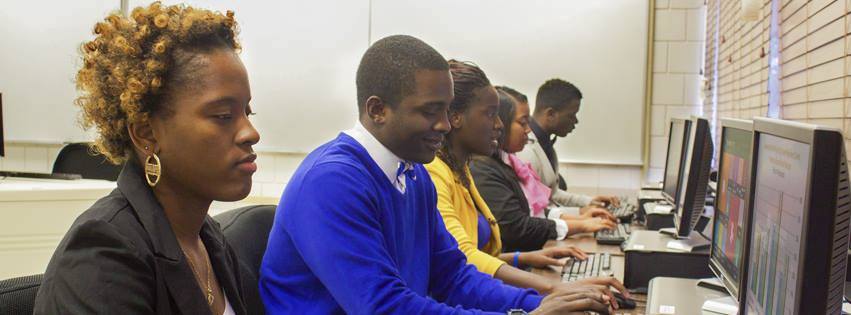Outreach Toolkit: College Prep Time

Here are overall guidelines for students in grades 8-12 as well as a year-by-year list of important events and critical deadlines.

Grade 8-9
Students should:
- Become involved in community outreach programs (AVID, GEAR UP, TRIO, etc.), if available. These programs aim to support students’ academic success and provide services to help students get to and through postsecondary education.
- Be thoughtful about the friends they make, creating peer groups that encourage them to excel inside and outside the classroom.
- Document their academic achievements, leadership activities and the impact they have made in their community. This will make it easier to craft a strong resume later.
Grade 10
Students should:
- Review courses with their guidance counselor early in the year to make sure they are preparing to take the most challenging academic program available at their school, and that the courses will fulfill college admission requirements. Colleges usually require four years of English, history, math, science and foreign language.
- Start researching colleges at the guidance office and online. In this way they will have time to identify the best matches for their interests and preferences in terms of diversity, location, weather, academic and athletic programs, prestige/selectivity, class size and other criteria. The National Association for College Admission Counseling (NACAC) and Peterson’s are great research tools.
- Talk with their guidance counselor about whether to take the Preliminary Standard Aptitude Test (PSAT). This test measures critical reading skills, math problem-solving skills and writing skills. Junior-year PSAT scores are evaluated for National Merit Scholarship qualification, but sophomores can take the test for practice.

Grade 11
Students should:
- Visit their guidance counselor right after school starts. Review courses to make sure they are the most rigorous possible considering the students’ level of academic preparation. Discuss the standardized tests that should be taken this year. According to the College Board, most juniors take the PSAT in the fall and the SAT or ACT in the spring. SAT subject tests, sometimes called SAT II, can be taken this year or next, but not every student takes them.
- Keep investigating colleges and begin to prepare for scholarship opportunities. Often there are special qualifying exams or other requirements. Start to investigate possible majors and careers.
- Study hard—make that, harder! Junior-year grades are the most important because college admissions officers typically review applications before senior-year grades are available. Students should be sure to put in extra effort this year, looking for AP, IB and Honors courses if available.
- Attend college nights and college tours, where college representatives from around the country provide you with information and answers to your questions. Start visiting schools to sit in on classes, talk to students, visit residence halls and experience campus life in person.
- Sign up for college mailing lists online.
Grade 12
Students should:
- Most important: Avoid “senioritis!” Colleges want to see strong second half grades. In fact, colleges can—and do—withdraw acceptances if final grades are unsatisfactory.
- Register to take the SAT or ACT again, if desired, as well as SAT subject tests. Map out a final standardized test plan with the guidance counselor. Review scores from the PSAT or previous SAT tests to see where to improve. Ask for help if necessary. Use this SAT Preparation Booklet from the College Board.
- Keep investigating possible majors and careers.
- Apply for colleges. Start early in the fall and leave plenty of time to write essays, collect information, contact references, obtain transcripts and take all other required steps.
- Apply for scholarships and financial aid, being sure to fill out your FAFSA as soon after Jan. 1 as possible.
- Create a resume.
- Apply for scholarships: scholarship resources include UNCF.org, GMSP.org and fastweb.com.
Helpful links
Know How to Go: www.knowhowtogo.com
Explore the site to learn more about the steps you need to take to be college-ready.

ACT: www.act.org/content/act/en/students-and-parents.html
Tips and timelines from one of the country’s largest college admissions testing companies.
College Board: bigfuture.collegeboard.org
Use the online planning tool to explore majors, schools and more.
Federal Student Aid: studentaid.gov
An office of the U.S. Department of Education, FSA makes it easier to get money for college.
Fastweb: www.fastweb.com/registration/step_1
Fastweb is your connection to scholarships, colleges, financial aid and more.
The Posse Foundation: www.possefoundation.org
Posse is one of the most comprehensive and renowned college access and youth leadership development programs in the United States.
College Navigator: nces.ed.gov/collegenavigator
Use the tool to find the right college for you.